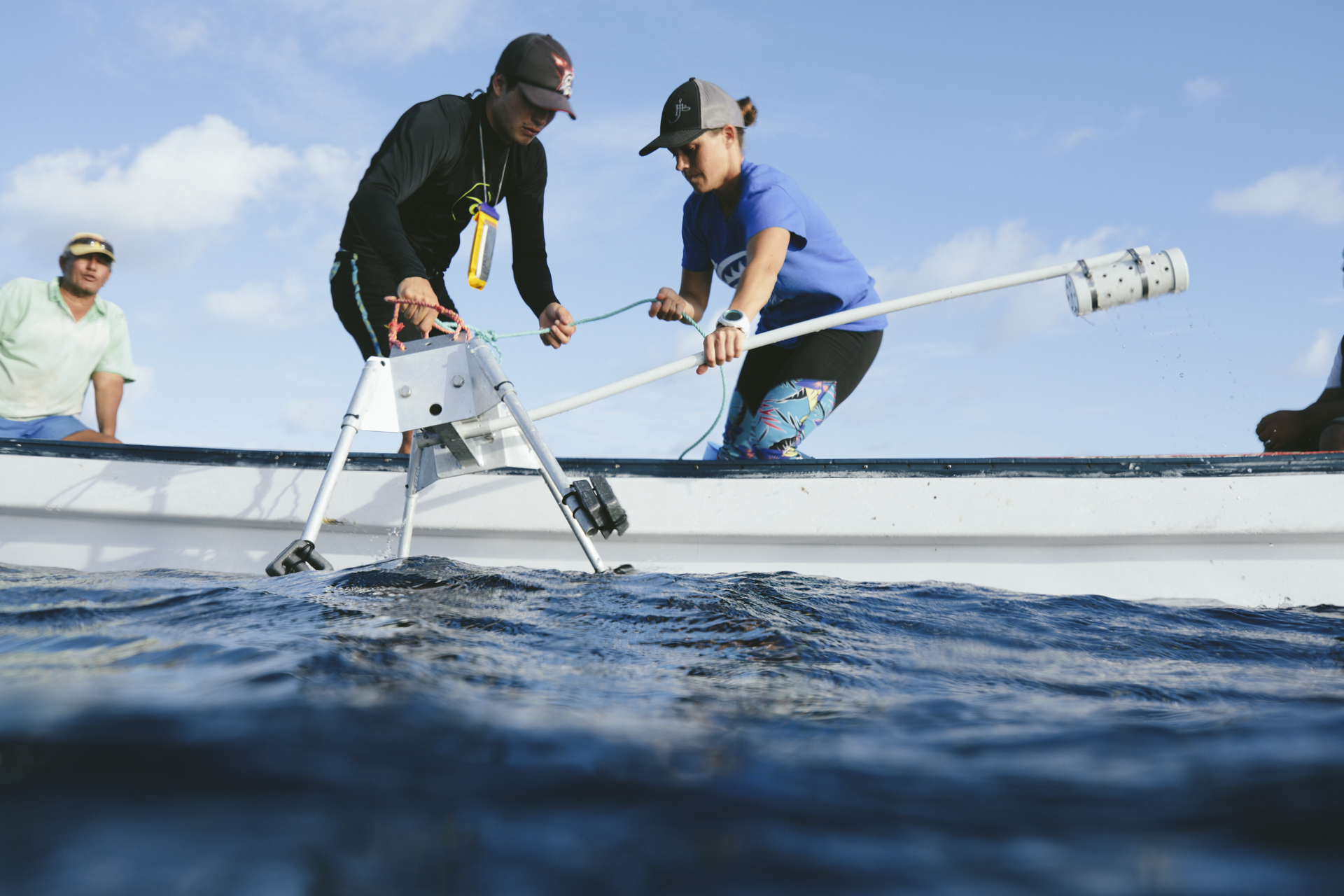Sharks Pacific was a proud collaborator on the Global FinPrint global reef shark and ray survey, which recently published its findings in the journal Nature. Last week this top science journal published the landmark study titled “Global status and conservation potential of reef sharks.” The project surveyed nearly 400 reefs across 58 nations as part of the Global FinPrint project and concluded that sharks were virtually absent on many of the world’s coral reefs, indicating that they are too rare to fulfill their normal role in the ecosystem. Sharks were not observed on nearly 20 percent of all reefs, with destructive fishing practices, such as the use of longlines and gillnets, accounting for the highest mortality of reef sharks. However, the silver lining of our paper revealed that shark sanctuaries, areas closed to fishing, catch limits and fishing gear restrictions (such as the absence of gillnets and longlines) showed higher populations of sharks. This means that shark conservation efforts, when properly implemented, can work under the right socio-economic conditions (e.g. when reef sharks are not the primary source of food for communities).
Our Executive Director, Jess Cramp, is a co-author on the paper for our work in the Cook Islands and Niue. In 2016 and 2017, we deployed over 300 baited remote underwater video stations (BRUVS) on reefs around the two nations. Check out the video below to see a sample of some of the footage that we captured. We were the first to conduct a baseline study of sharks and rays in the Cook Islands and Niue and will be sharing country-level data in subsequent posts.



